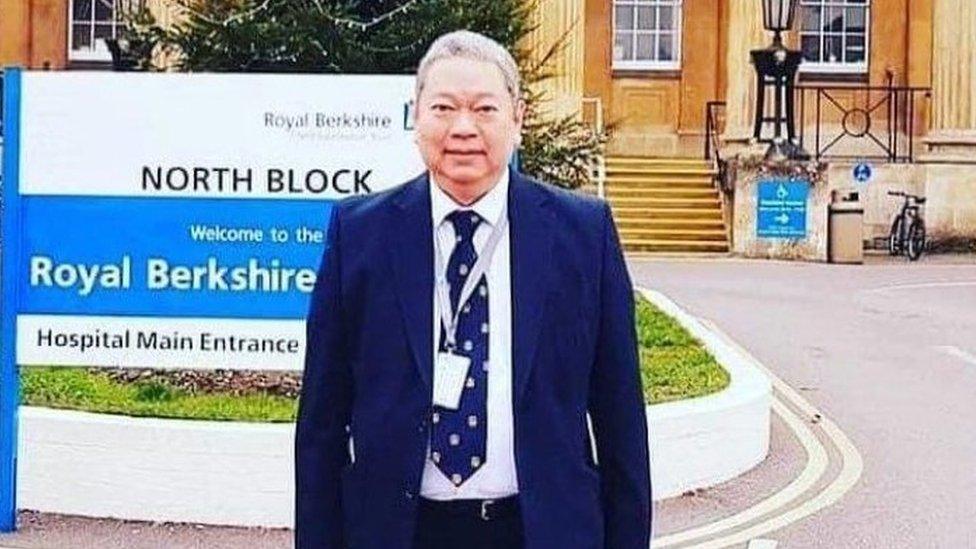Coronavirus: Professor 'saved by former medical students'
- Published
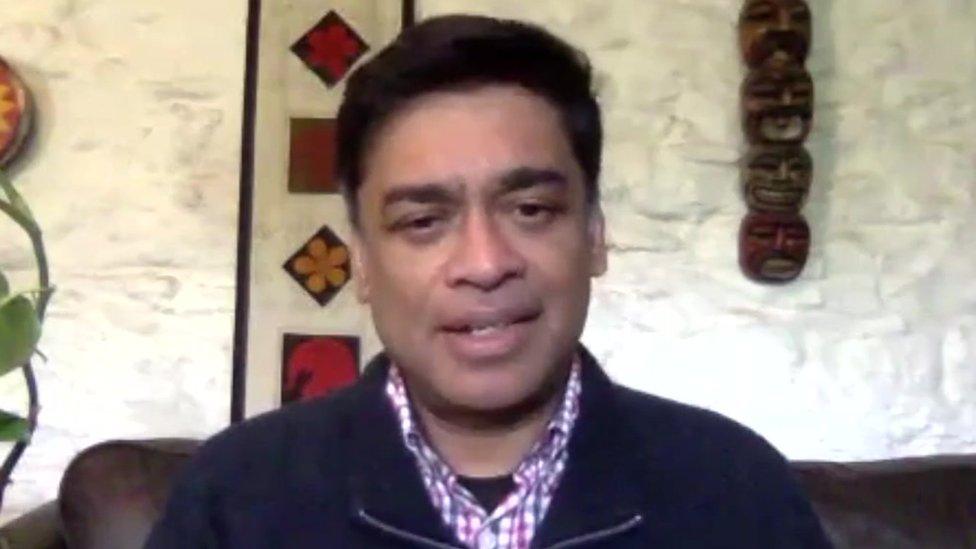
Professor Poorna Gunasekera teaches at the Peninsula Medical School in Plymouth
A professor has described three of his former medical students as "angels without wings" for saving his life after contracting coronavirus.
Professor Poorna Gunasekera, also known as "PG", was taken to Derriford Hospital in Plymouth on 30 March after his Covid-19 symptoms worsened.
At one point "the body was producing inflammatory markers that are actually not compatible with life", he said.
He added it gave him "sense of security" to know who was treating him.
Prof Gunasekera, who is an Associate Professor of Peninsula Medical School at Plymouth University, first developed coronavirus symptoms at home.
"I continued to deny I was seriously unwell until my daughter forced me to have my temperature taken and it was 39 degrees.
"That set alarm bells ringing", he said.
'Close to death'
Prof Gunasekera was taken to hospital by ambulance where he was tested for the virus.
When his second test returned positive, he was transferred to the "red zone", one level below intensive care.
The professor was cared for by a doctor and a nurse whom he had both taught.
They identified themselves beneath their PPE equipment then realised who was treating him.
"It gave me a sense of security to know these people were there", he said.
"It meant a lot because I couldn't identify them. They are covered from head to toe - all you can see is their eyes.
"I knew I was going down ... the body was producing inflammatory markers that are actually not compatible with life.
"At one point I was close to death."

A SIMPLE GUIDE: How do I protect myself?
AVOIDING CONTACT: The rules on self-isolation and exercise
HOPE AND LOSS: Your coronavirus stories
LOOK-UP TOOL: Check cases in your area
VIDEO: The 20-second hand wash

Prof Gunasekera was told he would undergo a medical procedure that "could go wrong and could be very painful".
"They summoned a person in a specialist respiratory unit, who was also a student of mine.
"She carried that procedure out to perfection. I can't believe that it could be so painless."
Prof Gunasekera spent a total of 11 days in hospital before being well enough to return home.
He described his former students, who were unable to comment due to medical ethics, as "very humble".
"They are angels without wings. They just need to exist in order to continue the magic that they are doing."
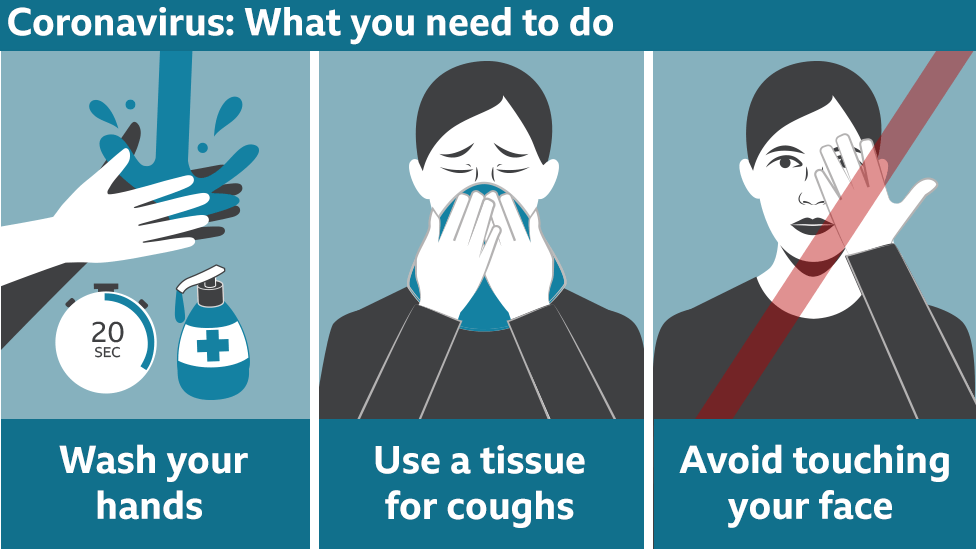
- Published10 April 2020
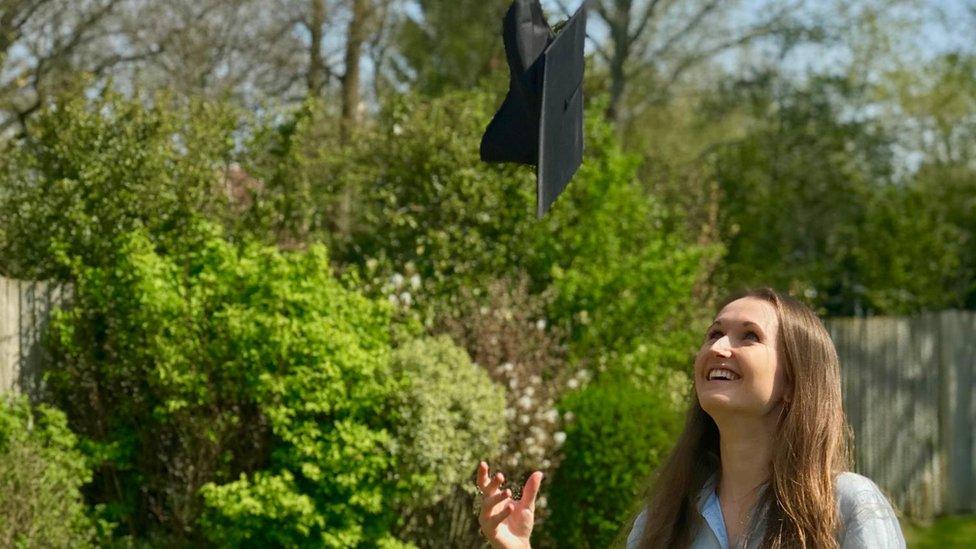
- Published1 April 2020
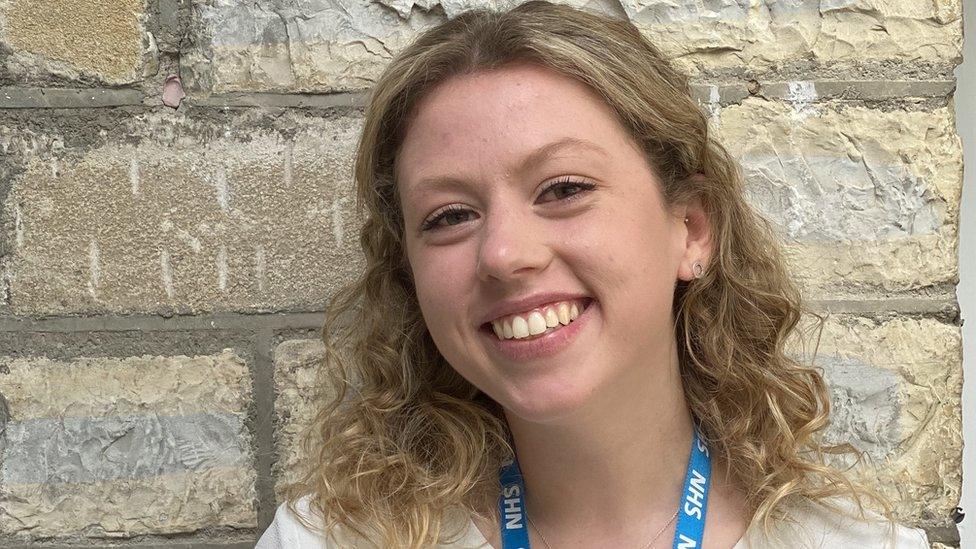
- Published16 April 2020
